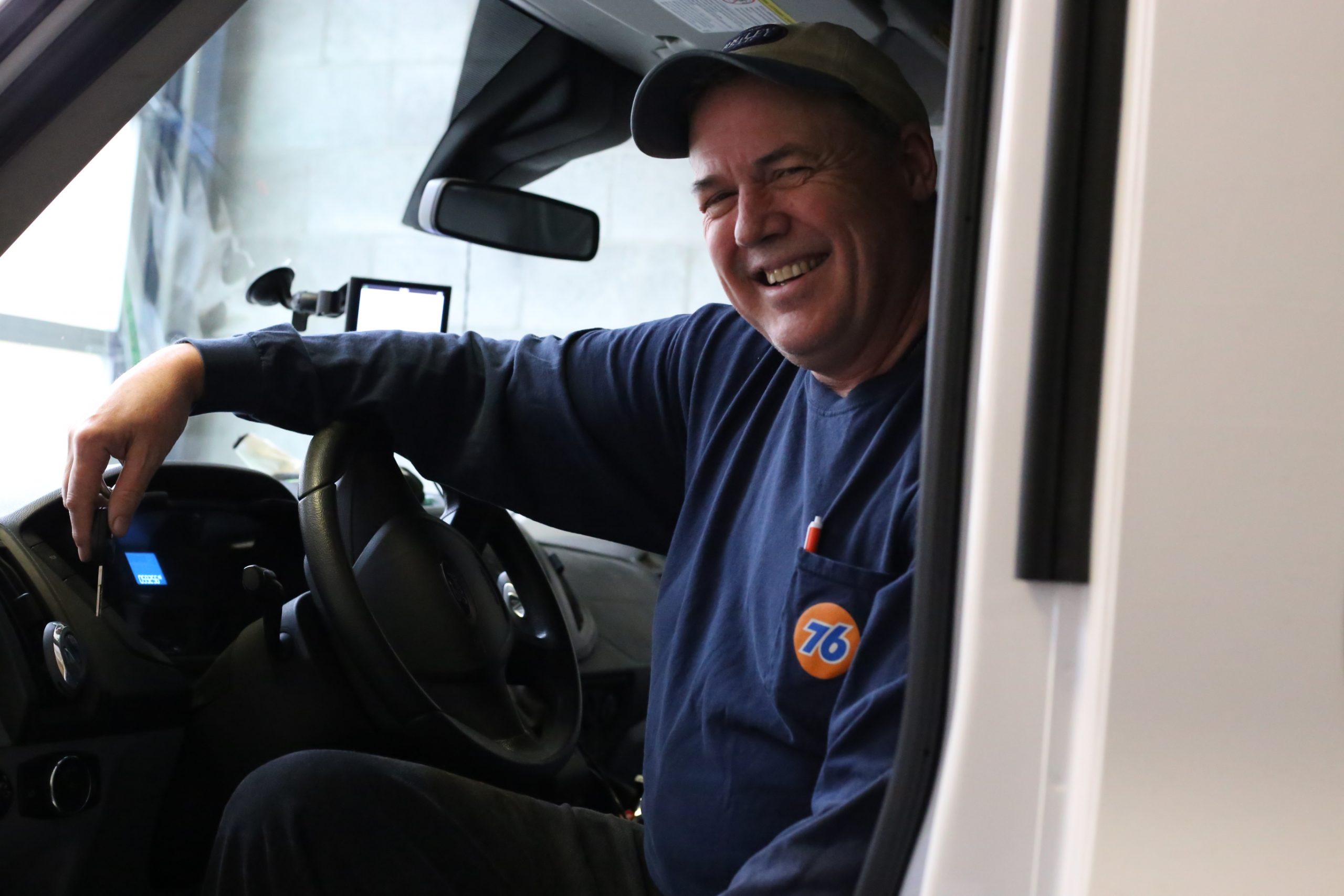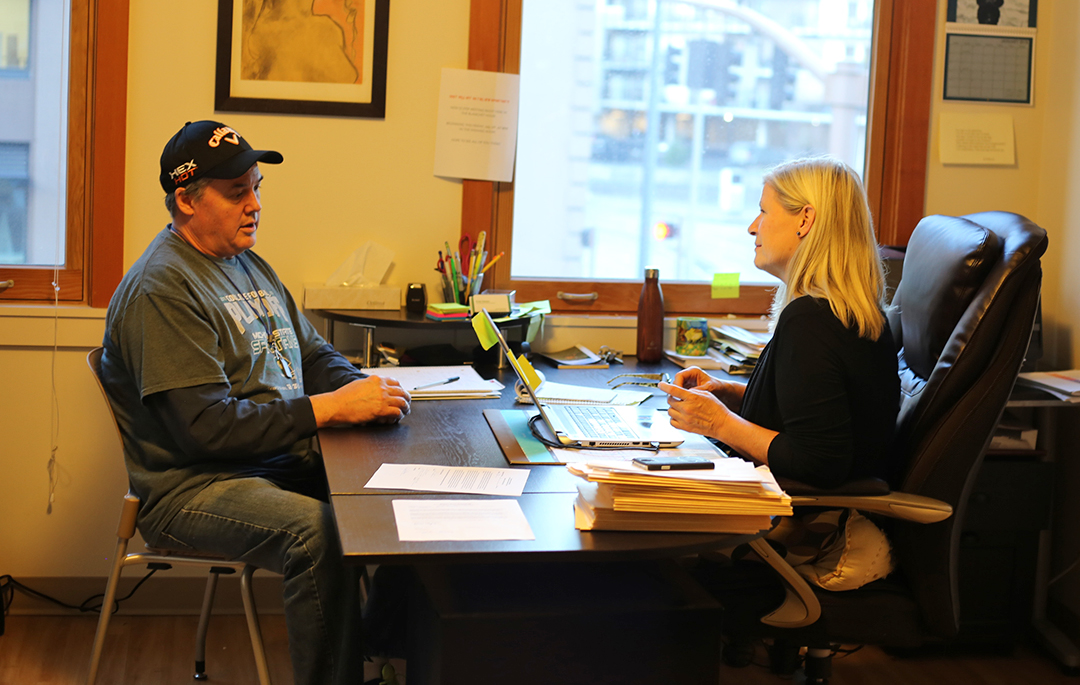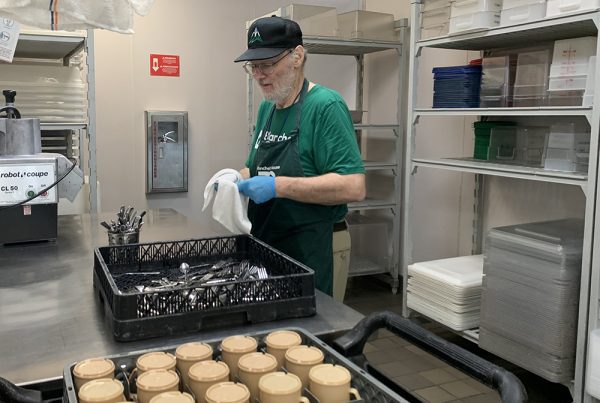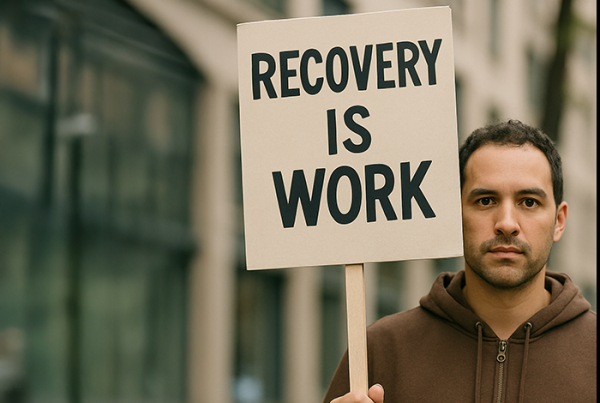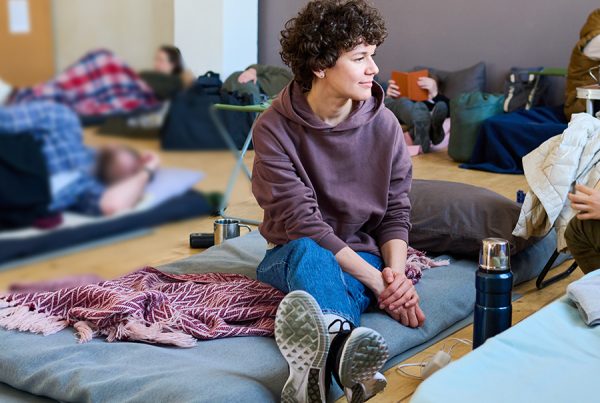“I lost my restaurants and catering business after the crash of 2008,” JD says. “Then my mom got sick. I moved in to take care of her. I had a lot of time on my hands and started drinking. I was depressed. I just lost my spark.”
JD’s mother and friends pleaded with him to seek help.
“I’m grateful for being alive and for you guys. You accept us.”
“I almost died. It’s pretty humbling to lay in a hospital bed. I looked into 90-day programs in my area but I could tell that I would be right back in the same spot after. I decided to come to Portland to live at the Union Gospel Mission (UGM).”
At UGM he started working full-time in the kitchen. JD says he started to get that spark back.
“Once I got into the kitchen, I got my self-worth back. It felt good to be of use again.”
After nine months at UGM, JD wanted to move on. He was ready to work outside of an institution but still needed the support of a sober living environment. A friend told him about Blanchet House. He knew the structure of the program was the necessary next step in his journey of rebuilding his life.
JD met with Kristi, a case manager at Blanchet. He could move in after a three day trial period working in the kitchen. In the interim, he had to sleep at a shelter. Those few nights gave him perspective on how hard it is for people living on the street. JD’s first job at Blanchet House was to drive the van picking up the daily food donations. It’s a demanding position that requires you to be on call.
After considering numerous job offers, JD is now a driver and trainer for Pacific Coast Fruit. He’s able to save money for an apartment thanks to the room and board Blanchet provides at no cost.
“I’ve been able to save everything while living here”, JD says. “May 15 is my exit date. I’m on a list for an apartment.”
JD cites the relationships he’s cultivated with the other residents for keeping him on track and for providing him with an extended family.
“I hope to be friends forever with the guys I’ve met here. I got a whole new family now,” he says.
As for those just entering the program, JD tries to encourage them to take advantage of the opportunities provided to them.
“I tell these guys, ‘You got to be serious about this. There are a lot of resources here. You got a lot of people donating their time and money. It’s our job to get better.’”
He wants to get the word out to others that find themselves in the dark space he was once in that Blanchet House is here.
“I’m amazed at how open you all are. You accept us. I’m grateful for being alive and for you guys. I will always be tied to this place. This is like home to me.”














